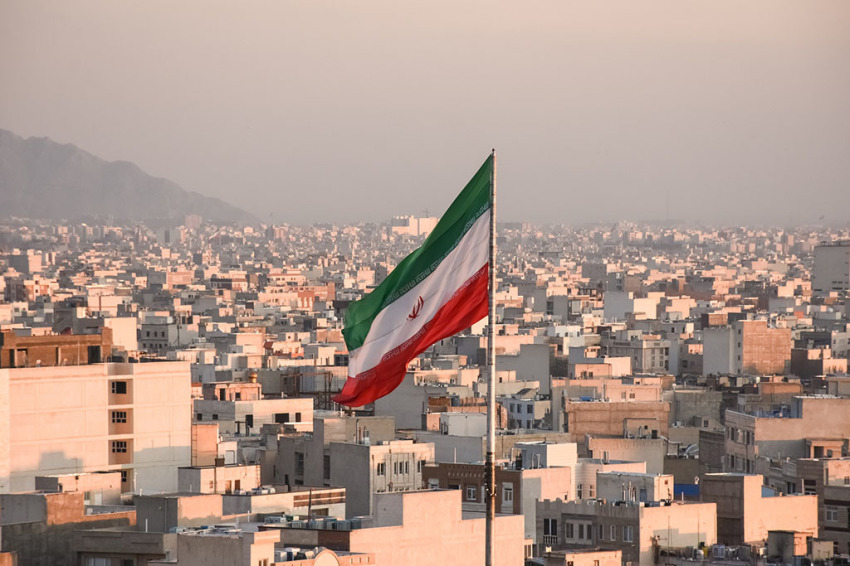Iran’s underground church comes 'above ground' to aid Muslim neighbors during COVID-19

Christians in Muslim-majority Iran are risking arrest to provide food and humanitarian aid to their neighbors struggling without jobs during the coronavirus pandemic, according to the head of one of the world’s most prominent Christian persecution watchdogs.
David Curry, CEO of Open Doors USA, an organization that monitors persecution in 60 countries, told The Christian Post that underground churches in Iran have surfaced amid the COVID-19 crisis to answer Jesus’ call to love their neighbors.
“It just began with people spending their own time and their own money to make sure neighbors have the care and support they need because of lost incomes and the COVID pandemic fallout,” Curry said, adding that efforts have become more organized over time as local church networks have gotten involved.
“The church [serves] as a rally point [and] centers of care and compassion for Muslim communities that they are living in,” he explained.
For security reasons, Curry could not go into detail about how many churches are involved in distributing aid and how the aid distribution works. He said that churches, which are already under tremendous societal pressure, are taking “extra risk” by trying to organize help for people who are struggling.
“The remarkable thing about the Iranian church is their ability to mobilize online networks into offline outreach in this highly restrictive, risk-laden environment,” Curry explained.
Iran is ranked by Open Doors USA as the ninth worst country in the world when it comes to Christian persecution.
Iranian society is governed by Islamic law and churches are banned from holding services in the nation’s most common language, Farsi. People caught attending underground house churches face arrest and many are arrested every year.
“The Church has always been strong in the underground among supporting each other,” Curry stated. “This is something different because they are having to come above ground, so to speak. They are starting in their pockets and their communities and neighbors, people who they know who are hungry and need hygiene kits and things like that. But it has gotten more organized, which brings greater risk. They have not done this sort of above-ground relief before. It’s a historic thing.”
The bold effort comes as the Iranian economy was hit hard over the last few years. The situation has gotten worse thanks to alleged mismanagement of the COVID-19 crisis by Iranian leaders.
So far, Iran has over 209,000 confirmed cases of COVID-19 and over 9,800 people have died. In recent weeks, it has been seeing more than 2,000 new cases a day.
“The added pressure of sanctions and the COVID pandemic shutdown has really hurt,” Curry said. “The leaders are always going to make sure they have theirs. But the working-class people, the elderly are suffering greatly in Iran.”
According to Curry, any type of underground church activity to serve neighbors in need is considered illegal in Iran because the regime has laws to “interpret these kinds of things.”
“They would see that as trying to coerce people,” he said. “There is no evangelism involved in this. It is just Christians loving their communities. They will interpret it as a reason to crack down on Christians, certainly.”
Curry assured that the distribution of food and hygiene packets does not involve evangelism.
“This is just people loving each other in Jesus’ name. Of course, [there are] individual stories. There are people who recognize that these are Christian folks who are helping them,” he said. “But this is not about trying to preach sermons or evangelize to people, per se, but just do the right thing because their faith calls on them to do it.”
Despite the risk, Curry said Open Doors felt compelled to share about the Iranian Church’s aid efforts because “there are many people right now who need some good news.”
“They need an example of the Church being the Church in the midst of the very intolerant situation,” he said. “I just think it is a good example for us to stand up, be brave. There are people in worse situations that are doing this and it is having a tremendous impact and it is the right thing to do.”
Despite the persecution, the underground church movement in Iran continues to grow. Open Doors estimates that there are over 800,000 Christians in Iran, a significant increase from the 450,000 Christians the group estimated in 2016. The 2011 census found 117,704 reported Christians in Iran.
Curry believes that the Church in Iran has been able to grow because people have been able to share their experiences of what Jesus has done for them on a personal level with their Muslim brothers and sisters who need hope.
“You have a very smart connected community in Iran, which is a great country that has been victimized by this regime. It has really been very organic,” Curry said.
Similar church-led aid efforts are happening in other countries where Christians are persecuted, such as India, where there have been reports of Christians being denied aid by radical Hindus.
“We have organized, big movements to help Christian communities and Christians are being salt and light to those around them,” Curry explained. “The situation is different [in India]. There are major needs there. There are mostly Christians being isolated in radical Hindu communities from aid. Churches are having to help each other survive. So it is a somewhat different manifestation but there is a lot of issues intensifying persecution in various countries.”
Follow Samuel Smith on Twitter: @IamSamSmith
or Facebook: SamuelSmithCP



























